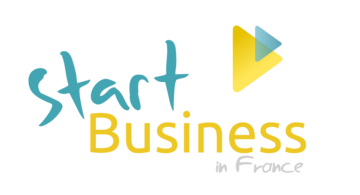I often talk about the best ways to start your business once you are in France, but recently I have been coming across more entrepreneurs planning their move to France up to a year in advance. In this article, I have specifically covered the steps you have to plan in order to quickly start your business, once you have landed in France.
1. Get the required documents to set up a business before you leave
Members of the European Union can register a business in France without any visas or titre de sejour. However non EU members will need titre de séjour vie privée et famille in order to be able to register your business. A tourist visa or short-term carte de séjour won't be enough. It is easier to get these papers in your country, where there is no language barrier. Get in touch with your French embassy or consulate. If you have special skills, you could look into carte de séjour compétences et talents, which is valid for 3 years.
2. Take a copy of key administrative documents
Birth certificates, marriage certificates, qualifications, and diplomas are required to set up health coverage for you and your family members. Some activities, such as carpenters, builders, hairdressers, accountants, and lawyers are regulated activities that require proof of qualification (or three years’ experience for crafts activities). Having these documents at hand will save you time.
3. Do a first basic business plan before your leave
Do your market research online, assess your competition, work on your services, products, suppliers, and prices. Draw up a provisional plan to assess how much money you need to get started, assess your running costs, and calculate your break-even point. Ask for help from an accountant too.
4. Take a few months on arrival before setting the business up
Get to know the area and ensure this is where you want to live. Moving from one department to another generates red tape and hassle by having to re-register with different bodies. Update your business plan with local information: competition, prices, delivery costs, taxes. Get in touch with local business advisors, who will give you more background and feedback on the local economy and your activity:
- Chambre de Commerce et d'Industrie, for trade and tourism,
- Chambre de Metiers, for skilled manual activities and crafts,
- BGE/ Boutiques de Gestion, national network of non- profit associations helping entrepreneurs.
5. Seek out advice to understand your liability and how much taxes you will pay
Your personal situation and your business activity are likely to dictate which legal structure is best for you. For instance, two partners will opt for a SARL/limited company, while a communication consultant with low investment and low expenses would be better off registering as an Auto-Entrepreneur. Meet a business advisor and/or accountant to understand how much you will pay to set up your business, see the yearly accountancy fees and understand the social charges and income tax expected to be paid according to each business type. Find out what is your personal liability and protect your assets if necessary (acte insaisabilité to protect your home).
For a personal assessment of your business project and summary of the best options to start your business in France, book a business call with Valerie. The helpline is a create way to assess which legal structure is best for your business, double check the regulations applied in your activity and for plain answers to your many questions surrounding your move to France.
